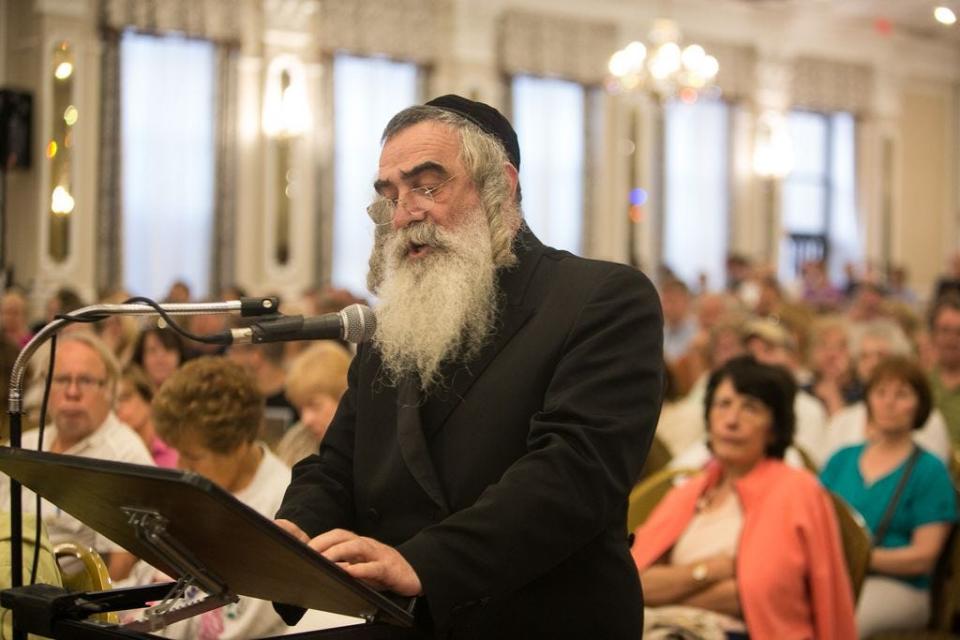A new Hasidic village in Monroe? Proposal debated in court after two years in limbo
An Orange County conflict that seemed to vanish during the pandemic resurfaced this week as lawyers argued in a Brooklyn courtroom over two cases involving plans to create a new Hasidic village next to Kiryas Joel.
Both cases were appeals of state Supreme Court rulings in 2019 and 2020 in support of the group that petitioned to form the Village of Seven Springs out of 1.9 square miles in the town of Monroe, on either side of Route 17. Attorneys for Kiryas Joel and Monroe are seeking to overturn those decisions, but faced a panel of four Appellate Division judges who sounded skeptical about their arguments.
A denial of those appeals would restart the village incorporation process, which has been frozen for three years after Monroe Supervisor Tony Cardone rejected the petition in August 2019. Cardone would then have to decide if the petition met legal requirements and either reject it again or schedule a public hearing before residents of the area to be incorporated would cast votes in a referendum.
That area includes most of the remaining unincorporated land in northern Monroe and includes Hasidic neighborhoods west of Kiryas Joel, large stretches of undeveloped land, and the Monroe section of Harriman Commons Shopping Center − the mall off Route 17 that includes Walmart and Home Depot.

Second ruling:Judge restores bid for new village in Monroe
Big plans:New Hasidic village near KJ being considered
Lawsuit: Seven Springs petitioners sue Town of Monroe
Herman Wagschal, the Monroe resident who led the petition drive, said Wednesday he and the other property owners whose signatures he gathered are still "100%" interested in forming their own village, despite the more than four years that have elapsed since their initial petition.

Their main goals: improving services in what he said was a neglected part of the town; and zoning control, Wagschal said.
Roughly 300 voters lived in the proposed village area at the time of the petition. They would decide the fate of the proposal and likely approve the creation of the village if the matter advances to a referendum. Residents in the rest of Monroe would not vote.
Which petition came first?
One legal dispute taken up by the appeals court Tuesday involves a competing request by Kiryas Joel to annex properties in Monroe that were also included in the Seven Springs petition. The overlap in those plans raised the question of which proposal was submitted first to Monroe and must be taken up by town officials before the other could be considered.
Clouding the timing are bizarre circumstances: Two men who opposed the village plans accosted Wagshal outside Monroe Town Hall and stole the petition from him before he could deliver it. In the meantime, Kiryas Joel Administrator Gedalye Szegedin tried to preempt Wagschal by emailing an annexation request the same day, which he later supplemented with other materials. Wagshal's lawyer emailed Monroe a copy of the village petition the day of the mugging, and Wagschal hand-delivered another copy the following day.
Supreme Court Justice Sandra Sciortino waded through the mess of documents and arguments in 2019 and found that Wagschal's petition came first.
Judges challenge timing dispute
The other dispute concerns Cardone's reason for rejecting the petition after Wagschal won the first case. He said Wagschal failed to pay a required $6,000 fee, even though he had done so in 2018 with an earlier version of the petition and his lawyer had asked the town to apply that original payment to the new petition. Wagschal sued Monroe and won that case, as well, before Sciortino.
The appeals court judges on Tuesday challenged the town's quibbling about the timing of the payment instructions. Justice Robert Miller said it appeared as though the town was taking advantage of the confusion after Wagschal was robbed of his petition.
"It's troubling, isn't it?" he asked.
Steven Barshov, attorney for the petitioners, called the town's objection "the most hyper-technical minutiae that I can possibly imagine" to try to stop the petition after the first court ruling allowed it to proceed.
"There was $6,000 sitting there for this very purpose, and nobody disputes that," he said.
Chris McKenna covers government and politics for the Times Herald-Record and USA Today Network. Reach him at cmckenna@th-record.com.
This article originally appeared on Times Herald-Record: Seven Springs, proposed Hasidic village in Monroe, debated

